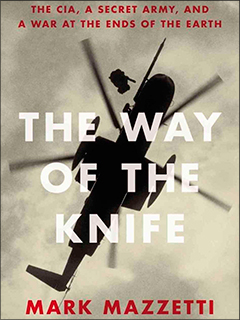An insider’s view
 I find current events much more interesting when I feel like I have an insider’s view of the news. I think it comes down to having a certain sense of comprehension or even control of what’s going on in the world. Sometimes I lapse into a mindset of believing that the forces that move events around the globe are incomprehensible to those that are far from the centers of power. At that point, I begin to lose interest in current events and politics for a while.
I find current events much more interesting when I feel like I have an insider’s view of the news. I think it comes down to having a certain sense of comprehension or even control of what’s going on in the world. Sometimes I lapse into a mindset of believing that the forces that move events around the globe are incomprehensible to those that are far from the centers of power. At that point, I begin to lose interest in current events and politics for a while.
Then certain experiences snap me out of this apathetic stupor. Once, it was watching the excellent movie Blood Diamond. More recently, it was watching the show Homeland and then reading Mark Mazzetti’s work, The Way of the Knife: The CIA, a Secret Army, and a War at the Ends of the Earth. Mazzetti is a journalist for The New York Times that has really dug deep into the foundations of several powerful institutions to create an insightful story about America’s new way of waging war.
In my opinion, The Way of the Knife is superbly written. It reminds me of perhaps my favorite work of nonfiction, The Metaphysical Club. Both books follow a kind of formula which has the effect of gluing my attention right to the narrative. And that formula is:
- Chapters that can stand on their own as individual pieces of excellent writing;
- Brief but revealing biographical stories of the characters (even minor ones) mentioned;
- The threads of each chapter tied loosely together into an overarching thesis or general idea.
My goal is to get better at this style of writing myself. When done well, I think it can make almost any historical topic interesting to read about.
What have we learned from the Iraq War?
The news stories are sounding awfully familiar. Nuclear weapons inspectors return home from the Middle East frustrated by their uncooperative hosts. The U.S. threatens military action. Television and radio channels across the world beat the battle drums. Public opinion rises in favor of war.
It seems like the prelude to the Iraq War is now repeating itself with Iran. The bulk of American armies quartered in Iraq flew back home in December. They were met in the United States quietly and with respect for their hard-fought victories. But the nation also remained silent about what the Iraq War has meant for the future of American foreign and domestic policy. There has been no real dialogue about this, and that is worrisome.

Source: NBC News/WSJ Polls via PollingReport.com
America buried thousands of its soldiers in the Middle East, and Iraq lost hundreds of thousands of soldiers and civilians because of the conflict. The Iraq War cost the American taxpayer nearly 2 trillion dollars. This money could have been used to help solve the healthcare problems in America or even just eliminate our chronic budget deficits.
But the public seems willing to sacrifice more blood and treasure in Iran without even discussing the cost. Saddled by a monstrous amount of debt, can our nation even afford another such war?
The president, who may have to take a hard line against Iran as a diplomatic tactic, can’t initiate a national dialogue about the feasibility of war in Iran. That’s the job of Congress, the media, and the public–before the decision is made for us. And the war in Iraq is an excellent reference point for such a debate.
The perils of manipulation
 A Mosque in Munich: Nazis, the CIA, and the Rise of the Muslim Brotherhood in the West
A Mosque in Munich: Nazis, the CIA, and the Rise of the Muslim Brotherhood in the West
by Ian Johnson.
Houghton Mifflin Harcourt, 318 pp., $27 (or free at your local library).
Most people in the United States know that the CIA supported and equipped the mujahideen to fight against the Soviets in Afghanistan during the 1980s. This, and the dangers of such a strategy, are now common knowledge. What most Americans don’t know and what journalist Ian Johnson has investigated and described in his book, A Mosque in Munich, for the first time, is that the US strategy of using Islam as a tool of foreign policy has an even longer history that stretches back to events surrounding the Second World War.
This story is one of harsh realpolitik with many covert operations conducted by the US, West Germany, and the Muslim Brotherhood that centered around a mosque in Munich during the Cold War. There are few relatable characters in Johnson’s book, but several of them led colorful lives of travel and geopolitical intrigue as they struggled to co-opt the religion of Islam for national or ideological purposes.
Kaiser Wilhelm II was perhaps the first modern European leader to engage in this kind of manipulation with the goal of undermining another Western power, England, in the diplomatic wrangling leading up to World War I (a book devoted to this topic, The Berlin-Baghdad Express: The Ottoman Empire and Germany’s Bid for World Power by Sean McMeekin, was published in September).
The Germans picked up on this idea during World War II, when they realized that many Muslims living in the Soviet Union were embittered citizens and could be convinced to fight in Nazi uniform against the Soviets when they were captured. About 150,000 Soviet Muslim prisoners volunteered for service in the German army during World War II.
leave a comment